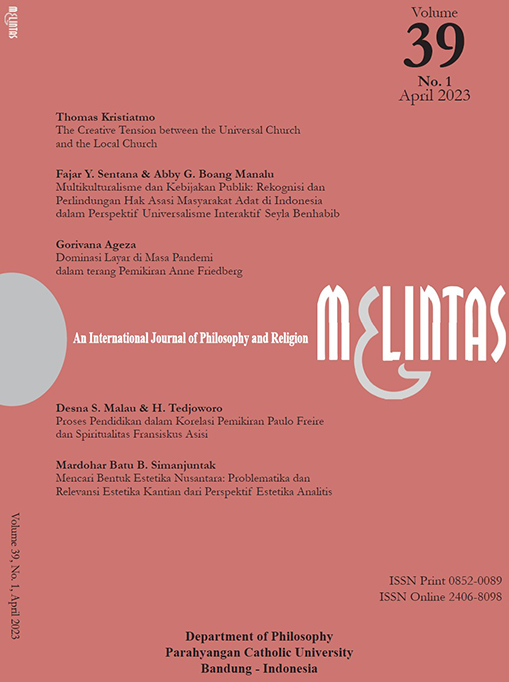Dominasi Layar di Masa Pandemi dalam terang Pemikiran Anne Friedberg
Isi Artikel Utama
Abstrak
Screen allows humans to experience and understand the world without being limited by the existence of their physical body. This is one of Anne Friedberg's main ideas in her works, which supports the main basis for this article. The Covid-19 pandemic that has occurred since March 2020 has limited, reduced, slowed down, and in some situations it could even be said it almost stopped human mobility, for example, in areas over the world where the ‘lockdown’ policy was applied. As a consequence, mobility turns into immobility. This condition corresponds to the reality during the pandemic dominated by the presence of screen. There has been growing importance of domestic space as the centre of everydayness that gives crucial role to the screen as its window to the world. This could be perceived as virtual mobility, in the sense that it was a ‘mobility’ without bodily mobility. This article elaborates Friedberg's thoughts with regard to virtual mobility that has been increasingly dominated by the screen, by examining its relevance to the actual conditions of the people during the pandemic. At the end of this article, the consequences of this massive virtual mobility and screen dominance during the pandemic are analysed—a situation that might bring further implications on the experiences of aura, panopticon, and consumption.
Rincian Artikel

Artikel ini berlisensi Creative Commons Attribution-NonCommercial 4.0 International License.
MELINTAS applies the Creative Commons Attribution (CC BY NC) license to articles and other works we publish. If you submit your paper for publication by MELINTAS, you agree to have the CC BY NC license applied to your work.
